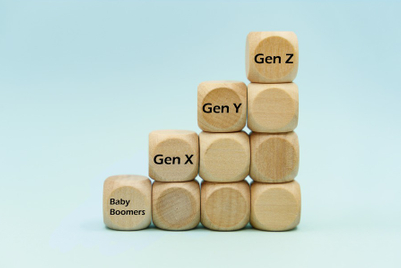
An Upper House election in July this year saw Japan’s nation’s newly enfranchised 18- and 19-year-olds vote for the first time. This development put young people in the social spotlight after years of languishing in the shadows of the elderly.
Youth behavioral patterns converging worldwide
I started tracking trends among China’s young from around 2005, thereafter extending my observations to Southeast Asia. It gradually became apparent to me that young people around the world are becoming very similar. Among other things, they tend to frequent stylish cafes, be glued to their iPhones, and spend a lot of time on social networking sites.
My recent observations of young Westerners have revealed that they behave much like their Japanese peers. In Japan, many think that the typical young American is fixated on celebrities and wants to get rich quick. That may well have been true before the Lehman Brothers collapse. But like their Japanese peers, young Americans don't want cars, consume alcohol very moderately, and get their kicks from discovering interesting restaurants within walking distance from home. It is indeed a small world.
The potential of the young as good voters
Another factor common to the young worldwide is that they are disadvantaged. In Japan, for example, 18 and 19-year-olds expect their pension payouts to be less than what they pay in. That is disheartening.
More and more young people everywhere consider themselves underprivileged. But while that is not necessarily the fault of the middle aged and the elderly, societies would be happier if the young engaged a bit more in politics and demanded more attention and fair play.
Unlike some of their counterparts overseas, Japan’s young today don’t generally take part in radical demonstrations or resort to violence. They tend to be somewhat stoic, consuming little, having little desire to climb the social ladder, and being reluctant romantics. All in all, they would rather take things easy.
In my view, this lack of self-interest is positive. The young have excellent potential to improve society and politics as conscientious voters. They can empathise with others because they themselves have experienced economic adversity and get more information through social media.
In the years ahead, I plan to step up my research into young people around the world in light of them becoming more and more similar to Japanese peers. The work would, for example, encompass Germany and Italy among developed nations and countries in the Middle East and other areas. I am also keen to explore patterns among those younger than 18, as they seem somewhat more willing to look after their own interests.
Yohei Harada is leader of Hakuhodo's Youth Research Center. He has written several books including Can 18-year-old voters change Japan?.
Do you have a perspective on Japanese youth in a global context? If so, please email David Blecken, executive editor, Campaign Japan.
Read this article in Japanese on Campaign Japan: 「18歳選挙」で、久々に注目される日本の若者世代


.jpg&h=334&w=500&q=100&v=20250320&c=1)

.jpg&h=334&w=500&q=100&v=20250320&c=1)

.jpg&h=334&w=500&q=100&v=20250320&c=1)











.jpg&h=268&w=401&q=100&v=20250320&c=1)
